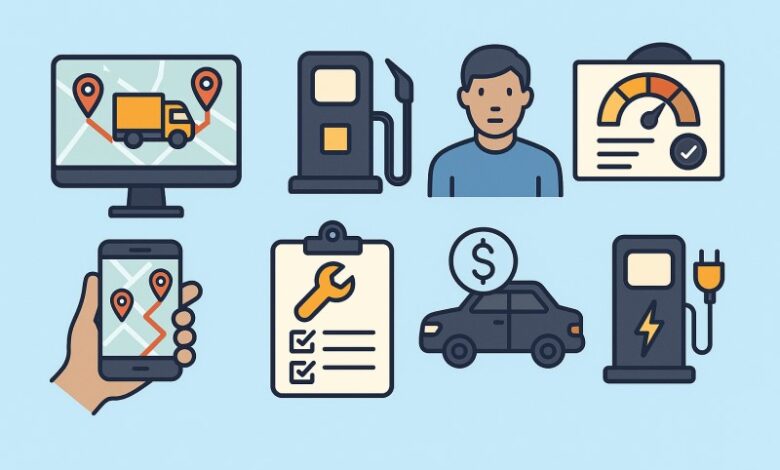Core Features of Fleet Management

Fleet Fixation understands fleet operations require management software to operate
more efficiently. This software provides accurate details about vehicle locations and
driver behaviour, enabling more decisive and informed decision-making.
Up-to-date software prevents poor decision-making while freeing up staff time to
focus on growth activities. Here are some core features of fleet management
software:
1. GPS Tracking and Telematics
Fleet management software enables real-time GPS tracking of vehicles,
allowing managers to see drivers’ locations, speeds, and routes. This helps
optimise driver routes, improve response times, and prevent unauthorised
vehicle use.
2. Fuel Tracking and Management
Monitoring fuel consumption is essential to identify inefficiencies and control
fuel costs. Fleet management software allows managers to track fuel usage,
identify trends, reduce expenses, and prevent fuel theft.
3. Maintenance Scheduling and Alerts
Fleet management software lets you schedule and track vehicle maintenance
and repairs. You can set reminders for routine servicing, track maintenance
history, and generate reports—giving managers confidence that vehicles are
properly maintained, reducing the risk of breakdowns and optimising fleet
performance.
4. Driver performance Monitoring and Reporting
With the right software, managers can generate driver scorecards and identify
areas for improvement. This helps reduce accidents, improve fuel efficiency,
and lower maintenance costs across the fleet.
5. Mobile app
Your fleet is mobile, so your software should be too. A mobile app allows your
team to access information and complete tasks while on the road, reducing
downtime and errors.
6. Work Order Management
Fleet management software provides a centralised system to track and
allocate work orders. Managers can prioritise tasks based on urgency,
importance, and available resources.
7. Lifecycle Cost Analysis
Fleet management software should include lifecycle cost analysis to support
informed decision-making about vehicles and equipment over time. This
feature enables fleets to evaluate the total cost of ownership by factoring in
the vehicle’s purchase price, fuel consumption, maintenance and repair costs,
insurance, depreciation, and eventual disposal. By understanding these costs,
managers can make smarter choices about asset acquisition and
replacement.
8. Charge Management Software
As electric vehicles become more common, fleet management software must
adapt to support them. Integrated charge management features allow fleets to
monitor and control EV charging infrastructure from a centralised platform.
This ensures efficient scheduling, reduces energy waste, and helps maintain
operational readiness across the electric fleet.
Fleet management software is a powerful tool that helps businesses run their
vehicles and operations more effectively. With features like real-time GPS tracking,
fuel usage monitoring, maintenance scheduling, and driver performance reporting,
managers can make smarter decisions that save time, cut costs, and improve safety.
The software also helps reduce paperwork and manual tasks, giving staff more time
to focus on other important areas like customer service and business growth. As
more electric vehicles join fleets, having charge management tools and lifecycle cost
analysis becomes even more important for long-term planning and sustainability.
By investing in reliable fleet management software, companies can stay in control of
their operations, improve performance, and be ready for the future of transport.
Contact Fleet Fixation and request a demo.


